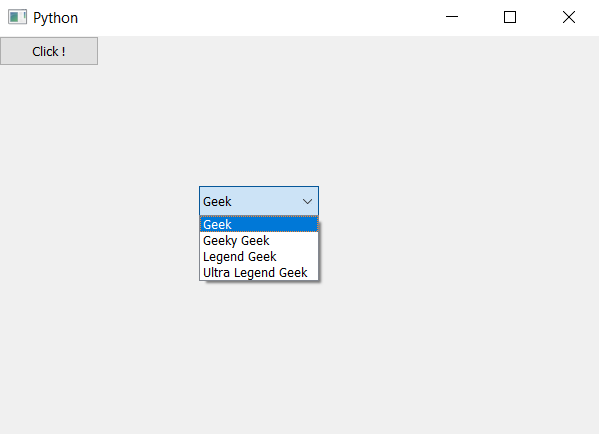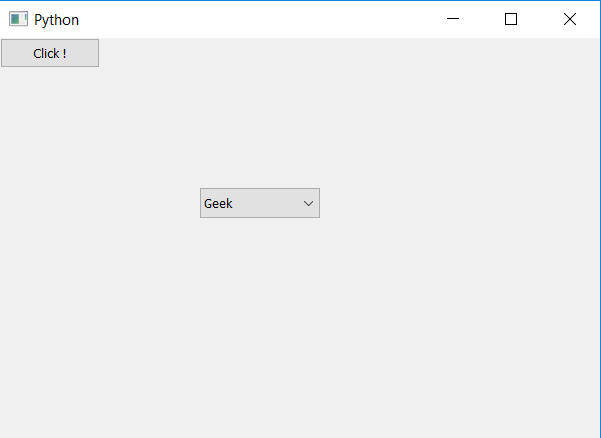En este artículo veremos cómo hacemos un cuadro combinado para ocultar sus elementos sin hacer clic en él, para hacer esto usaremos el hidePopupmétodo.
Sintaxis: combo_box.hidePopup()
Argumento: no requiere argumento
Acción realizada: ocultará los elementos emergentes
Pasos para la implementación:
1. Cree un cuadro combinado
2. Agregue elementos al cuadro combinado
3. Cree un botón pulsador
4. Agregue una acción al botón pulsador de modo que cuando se presione se llame
al método 5. Dentro del método, oculte la ventana emergente con la ayuda de hidePopupmétodo.
A continuación se muestra la implementación.
# importing libraries
from PyQt5.QtWidgets import *
from PyQt5 import QtCore, QtGui
from PyQt5.QtGui import *
from PyQt5.QtCore import *
import sys
class Window(QMainWindow):
def __init__(self):
super().__init__()
# setting title
self.setWindowTitle("Python ")
# setting geometry
self.setGeometry(100, 100, 600, 400)
# calling method
self.UiComponents()
# showing all the widgets
self.show()
# method for widgets
def UiComponents(self):
# creating a combo box widget
self.combo_box = QComboBox(self)
# setting geometry of combo box
self.combo_box.setGeometry(200, 150, 120, 30)
# geek list
geek_list = ["Geek", "Geeky Geek", "Legend Geek", "Ultra Legend Geek"]
# adding list of items to combo box
self.combo_box.addItems(geek_list)
# creating push button
button = QPushButton("Click !", self)
# adding action to the button
button.pressed.connect(self.action)
def action(self):
# hiding the pop up
self.combo_box.HidePopup()
# create pyqt5 app
App = QApplication(sys.argv)
# create the instance of our Window
window = Window()
# start the app
sys.exit(App.exec())
Producción :
Después de hacer clic en el botón pulsador
Publicación traducida automáticamente
Artículo escrito por rakshitarora y traducido por Barcelona Geeks. The original can be accessed here. Licence: CCBY-SA